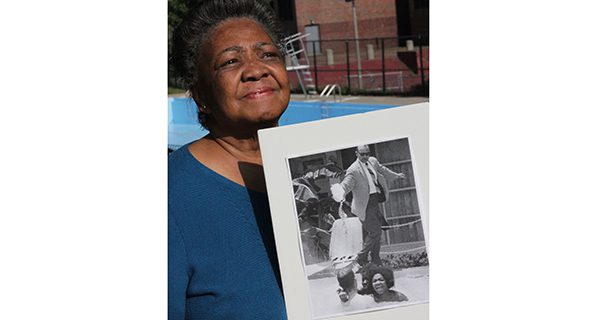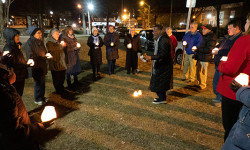By Amelia Tarallo
Hometown Weekly Special Correspondent
For many of us in Massachusetts, St. Augustine is just another pin on the map - another tourist destination in sunny Florida.
Just a few decades ago, though, St. Augustine was the site of the bloodiest civil rights campaign.
The campaign is the subject of the documentary “Passage at St. Augustine: The 1964 Black Lives Matter Movement That Transformed America.” The documentary, which includes numerous interviews from civil rights activists, KKK members, SCLC members, NAACP members, and law enforcement, will be presented next Wednesday, March 7, at 4 p.m. at Wellesley College’s Davis Museum’s Collins Cinema. The documentary’s filmmaker and journalist, Clennon King, will be part of a discussion and Q&A after the film, as will Mimi Jones, a resident of Roxbury and participant in the St. Augustine campaign.
In March 1963, St. Augustine was preparing to celebrate its 400th anniversary. No black people were allowed to help plan the event or participate in the celebration. Ten years before, Brown v. Board of Education had established that states having separate public schools for black and white students was unconstitutional. Schools in St. Augustine were still separated.
It was ridiculous that the celebration would be funded by federal tax dollars paid by black residents who were not allowed to participate.
“It's no different from what happened in the Boston Harbor,” says King, who can see the similarities between the St. Augustine movement and the Boston Tea Party. “It was taxation without representation. The only difference was that race was skin color.”
The frustration over the lack of representation for the 400th anniversary launched the movement. Sit-ins were held at local stores. People marched throughout the town. Black protestors visited segregated areas, like beaches, and swam in segregated pools. They tried to eat at whites-only restaurants.
That was only the start of the movement.
The protests attracted visitors from across the country. Malcom X and Martin Luther King were among the civil rights advocates who visited St. Augustine. Parkman Peabody was one of the many New Englanders who travelled to witness and participate in the movement. Her son, Endicott Peabody, was the governor of Massachusetts. Her arrest was reported by journalists around the country, producing an unsavory image of life in St. Augustine, a town that dependent upon tourism.
The discussion portion of next Wednesday’s screening may prove even more riveting than the documentary itself. Joining King will be Mimi Jones, a resident of Roxbury. Jones was participating in a St. Augustine swim-in when the hotel’s owner, James Brock, a pro-segregationist, dumped acid into the pool. She snapped a photograph of the act, which was used in newspapers around the world and helped the St.Augustine movement garner international recognition. To have her at the discussion is to have a living part of history. “The real foot soldiers of the movement were black women,” says King. “We wouldn't be in this position we’re in [without them.]”
The story of the St. Augustine movement isn't as well known as that of Montgomery, Birmingham, or Selma. But it was pivotal when it came to passing the Civil Rights Act of 1964, which outlawed discrimination based on race, color, religion, sex, or national origin.
St. Augustine has changed since then. Today, a monument dedicated to those who battled for equal right during the historic civil rights campaign sits beside the former slave market.
There is still work to be done. But the story of St. Augustine is a reminder of what can happen when people come together to fight for justice.
Clennon King will present “Passage at St. Augustine: The 1964 Black Lives Matter Movement That Transformed America” next Wednesday, March 7, at 4 p.m. at Wellesley College’s Davis Museum’s Collins Cinema. He will conduct a discussion and Q&A following the film, during which time he will be joined by Mimi Jones.

























